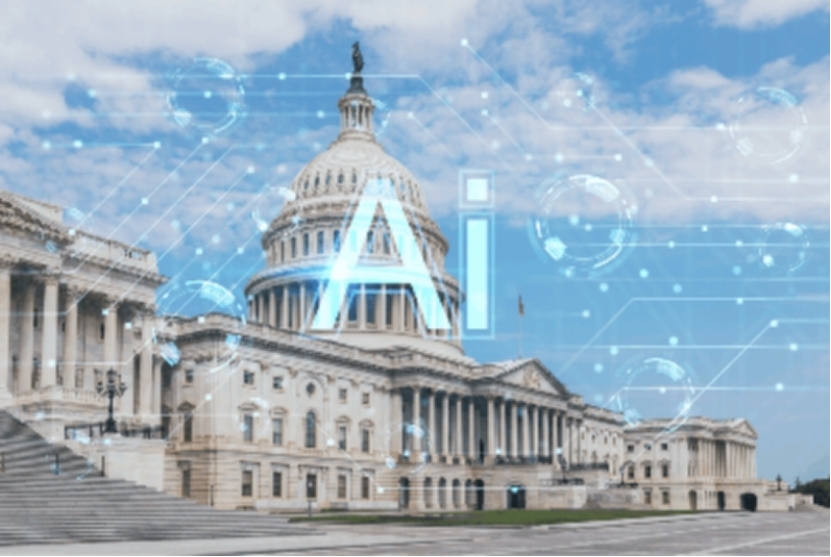
The US federal government recently rapidly introduced enterprise-grade AI tools from OpenAI and Anthropic into its three core departments, the executive, legislative, and judicial branches, for a highly symbolic price of $1 per year. The General Services Administration (GSA) touted this move as a model response to the White House's "AI Initiative," aiming to set a benchmark for the AIization of government globally.
However, the underlying logic of this seemingly affordable agreement, which benefits the public, is to deeply bind the core structure of state power to the closed-source algorithms of private tech giants. The White House AI policy director downplayed the market's "multiple players coexist, without a single monopoly." However, public affairs scholars have pointedly pointed out that the $1 price tag represents a sophisticated political price that avoids suspicion of profiteering while effectively putting the state apparatus on the technological trajectory set by the tech giants. Meanwhile, the National Institutes of Health's GeneAgent system is rapidly advancing in the biomedical field, signaling the established "marriage" of public power and private algorithms in a wider range of fields.
Underpinning this accelerated penetration is the core philosophy embodied in the Trump administration's "Winning the AI Race: America's AI Action Plan": reduced regulation means accelerated innovation. The plan frames AI as a "must-win race" concerning national security, while virtually ignoring ethical considerations and mentioning the word "responsibility" only once. In pursuit of speed, the government has resorted to using executive power to forcibly dismantle regulatory guardrails—easing environmental reviews, accelerating data center approvals, limiting state-level oversight, and even threatening to cut funding to states that implement "draconian AI regulations." More ideologically charged, the plan mandates ensuring the "neutrality" of federal AI systems, explicitly defined as excluding "wokeism and critical race theory," and directs the National Institute of Standards and Technology (NIST) to remove references to "misinformation, diversity, equity, and inclusion (DEI), and climate change" from its AI risk framework.
This crude categorization of diverse social issues as "politically incorrect" and their systematic sanitization has been denounced by digital ethicists as "value laundering," a stark contrast to the EU's AI governance approach, which emphasizes protecting vulnerable groups. Even more worrying is the Department of Energy's proposal to open federal lands to private companies for the construction of AI centers and grant them "environmental review exemptions," prompting serious warnings from UNEP officials that AI development could sacrifice the environment for computing power.
However, the US's vision of AI hegemony is facing dual challenges from infrastructure and geopolitics. Vice President Cyrus publicly denounced current policies as "utterly foolish," directly targeting the Achilles' heel of US AI ambitions: power shortages and a chaotic chip strategy. He revealed that China's massive investment in power infrastructure poses a real threat to US data centers, and that the oscillation between "banning" and "releasing" chip policies is viewed by Vance as "strategic self-harm."
Ironically, while US policy is wavering, China has developed an inference model comparable to GPT-4 at a significantly lower cost. Huawei's Ascend 910C chip's performance is approaching that of Nvidia's flagship product, and even surpassing it in certain tasks. Washington's slogan of "competition" pales in the face of power bottlenecks and chip difficulties.
As the US weakens ethical frameworks and focuses on a "winner-takes-all" approach, other global powers are attempting to reshape the landscape of AI governance. China has released its "Global AI Governance Action Plan," which explicitly calls for transforming AI "from a technological competition to a development engine," aiming to narrow the digital divide. The UAE, with its top-notch digital infrastructure and a 91% user satisfaction rate for government digital services, demonstrates that technological effectiveness and warm governance can go hand in hand. Carlo, a former EU AI ethics advisor, sharply contrasted two approaches: while the US is removing risk clauses, African farmers are using AI to obtain fair pricing for their produce; while the NIH cheers GeneAgent's claim of 92% genomic analysis accuracy, it hasn't fully disclosed how it will address the 8% risk of potentially fatal "AI delusion."
The end point of this infiltration is disturbing: the underlying logic of federal systems may have been quietly shaped by private algorithms, and policymaking may no longer stem from transparent democratic discussion but instead be subject to the implicit guidance of AI. A New Yorker commentary dubbed the $1 agreement "shrewd political performance art." The government saves money, businesses gain privileges, and public oversight is left vacant.
Ultimately, when national interests trump the common good of humanity, the true cost of this accelerated infiltration, disguised as "competition," may become self-evident.

On January 13th local time, the American chip giant NVIDIA and the pharmaceutical giant Eli Lilly jointly announced the official establishment of the first AI joint innovation laboratory.
On January 13th local time, the American chip giant NVIDIA …
On January 9, 2026, a subpoena from the U.S. Department of …
When Trump announced on TruthSocial a 25% tariff on Iran's …
Recently, according to reports from KGO TV of ABC and CalMa…
On January 13, 2026, the STOXX Europe 600 Index closed 0.2%…
A recent major trade policy adjustment proposed by the Unit…